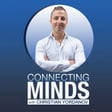
Optimising Health Using Your Pulse and Heart-Rate Variability w/ Dr Torkil Færø
Do you need help with your health? Would you like to increase your longevity while addressing existing health issues?
Request your FREE Metabolic Function Assessment session with me here: https://www.livelongerformula.com/
During this 45-minute consultation we’ll take a deep dive into critical areas of your metabolism and understand what is out of balance.
From gut health and hormone function to adrenal health and blood sugar regulation, even a small imbalance in any of these (or other) areas can lead to poor health in the future and diminished longevity…but the sad fact is that a large majority of people over 40 have multiple imbalances in multiple areas of their metabolism…
The key is to identify and address these swiftly, so that you can thrive for decades to come without worrying that “something’s brewing under the surface.”
Request your Metabolic Function Assessment session here and let's get you thriving for decades to come: https://www.livelongerformula.com/
---
On this episode of the Connecting Minds podcast we welcome Dr Torkil Færø to discuss his book The Pulse Cure. We discuss how you can use your pulse and heart-rate variability data to spot early signs of stress that can lead to poor health outcomes, and what to do about it.
Dr Torkil Færø is a general practitioner and emergency physician, documentary filmmaker, author and photographer. In 1996 he was one of the first Norwegian medics to work for Doctors Without Borders when he worked in war-torn Angola. Over a 25-year career as a freelance doctor, he has worked all over Norway, had tens of thousands of consultations and gained a unique picture of the diseases that plague us. He has learned that the cause is most often found in the stresses our lifestyles place on our bodies.
Færø is also an award-winning photographer, author of Kamerakuren (The Camera Cure), and has made documentaries about his pilgrimages to Nidaros and Santiago de Compostela. An inveterate traveller, he has made his way by bicycle, motorbike, kayak, sailboat and car through over 80 countries, and speaks eight languages. He lives in Oslo with his wife and two children.
Connect with Dr Torkil:
Instagram: https://www.instagram.com/dr_torkil.md/ (Norwegian: https://www.instagram.com/dr.torkil/)
The Pulse Cure: https://amzn.to/3Qmmf3p
Website: https://thepulsecure.com/
